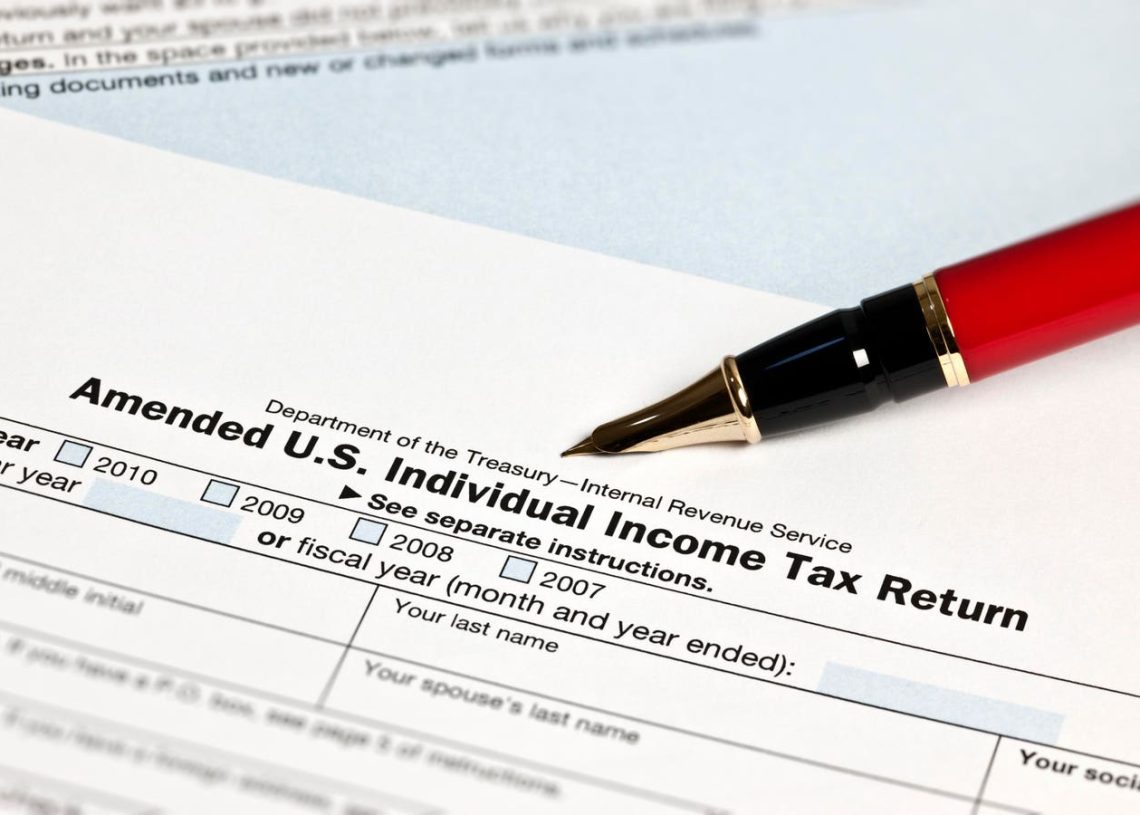When should you amend your tax return and when is it required that you do so? You need to file one with the IRS each year if your income is over the requisite level, which depends on your age and filing status.
In fact, you can be prosecuted for failure to file (a misdemeanor) or for filing falsely (a felony). If you are thinking about amending your tax return, ask yourself: Was the one I filed accurate to my best knowledge when I sent it in?
If the answer is no, you should probably amend the return. If the answer is yes, you are probably safe in not filing an amendment (but you still may want to). If you are being audited, amending a return may also send the wrong signal, further jeopardizing your position with the IRS.
So, think about it carefully. Of course, you may want to amend your return. Perhaps you realized you made a mistake, forgot payment or Form W-2, or left off the income from a Form 1099 you found in the bottom of a drawer. Math errors are not a reason to file an amendment, since the IRS will correct those for you.
Similarly, you usually shouldn’t file an amended tax return if you discover you omitted a Form W-2, forgot to attach schedules, or other glitches of that sort. The IRS may process your return without them, or will request them if needed.
You usually can’t correct a tax return without amending it. However, there is an exception, if you act quickly once you have filed your original return. If you file a superseding return before the due date for filing the original one (including extensions), it can take the place of initial document.
Say your original tax return was due April 15, but you filed it in February. Then, in March, you realized you made a big mistake. If you filed a superseding return by April 15, it can wipe out the errant return you filed in February.
In effect, the mistakes on the first return didn’t happen. The superseding one can be used to make an election that cannot be made on an amended return, or to make certain other changes.
But be wary about this unusual procedure. The IRS can become confused if you try this unusual procedure. You may end up facing a dispute (or at least correspondence or discussions) with the IRS about which of your original returns is valid, and whether your amended return actually functions as a superseding one.
Timing and proof of when you filed each tax return is important. Beyond this exception, you can fix mistakes only by amending your original one. If you later find that you made a mistake or you receive a revised Form 1099 or K-1, the IRS says you should amend.
You are not under an affirmative obligation to file an amended tax return. But you still may want to. If you do, you can’t cherry-pick the results. You can’t make only the corrections that get you money back, but not those that increase your tax liability.
If you want to amend your tax return, you must file a Form 1040-X within three years from the date you filed your original return, or within two years from the date you paid the tax, whichever is later. Amended returns are prepared on Form 1040-X, whether you previously filed Form 1040, 1040-A or 1040-EZ (which were discontinued after the 2018 tax year and converted to a simpler Form 1040).
If you are amending more than one tax return, prepare a separate Form 1040-X for each return. If you file an amended return asking for considerable money back, the IRS may review the situation even more carefully. As an alternative, you can apply all or part of your previous year’s refund to your current year’s tax.
Normally the IRS has three years to audit a tax return. You might assume that filing an amended tax return would restart that three-year statute of limitations. Surprisingly, it doesn’t. In fact, if your amended return shows an increase in tax, and you submit the amended return within 60 days before the three-year statute runs, the IRS has only 60 days after it receives the amended return to make an assessment.
This narrow window can present planning opportunities. Some people amend a return right before the statute expires. Plus, an amended return that does not report a net increase in tax does not trigger any extension of the statute of limitations.
If your amended return shows you owe more tax than on your original one, you will owe additional interest and probably face penalty fees. Even though you might be amending a return from two years ago, the due dates for your original return and payment have long passed.
Interest is charged on any tax not paid by the due date of the original return, without regard to extensions. The IRS will compute the interest and send you a bill if you don’t include it. If the IRS thinks you owe money in penalties, it will send you a notice, which you can either pay or contest.
Read the full article here









